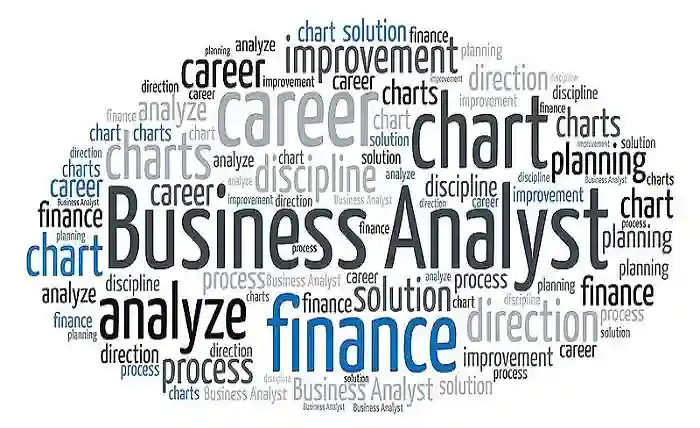How to Become a Business Analyst in 2023: A Complete Guide

Are you interested in a career that combines data, technology, and business? Do you enjoy solving problems, asking questions, and finding solutions? If so, you might want to consider becoming a business analyst. A business analyst is a professional who analyzes data and processes to help organizations improve their performance and achieve their goals. In this blog post, I will explain what a business analyst does, what skills and education you need, and how to get started in this rewarding field.
What Does a Business Analyst Do?
A business analyst is someone who works with data and processes to identify business needs and recommend solutions. A business analyst can work in various domains, such as finance, marketing, IT, healthcare, or education. A business analyst can also specialize in different areas, such as agile, business data analytics, cybersecurity, or product management.
Some of the typical tasks and responsibilities of a business analyst are:
- Gathering, reviewing, and analyzing data from various sources, such as databases, surveys, reports, or interviews
- Creating models, diagrams, charts, or dashboards to visualize data and communicate insights
- Identifying problems, opportunities, and requirements for improving business processes or systems
- Evaluating the feasibility, costs, benefits, and risks of different solutions or alternatives
- Developing specifications, documentation, and test cases for implementing solutions or changes
- Collaborating with stakeholders, such as managers, developers, customers, or vendors, to ensure alignment and satisfaction
A business analyst can work in different settings, such as consulting firms, corporations, government agencies, or non-profit organizations. A business analyst can also work remotely or on-site, depending on the project and the client.
What Skills and Education Do You Need?
To become a business analyst, you need a combination of technical skills and soft skills. Technical skills are the specific abilities and knowledge that you need to perform your job effectively. Soft skills are the general attributes and behaviors that you need to work well with others and achieve your goals.
Some of the technical skills that you need as a business analyst are:
- Data analysis: The ability to collect, manipulate, interpret, and present data using tools such as Excel, SQL, Python, R, or Tableau
- Business analysis: The ability to understand business concepts, strategies, goals, and requirements using frameworks such as SWOT, PESTLE, or Porter’s Five Forces
- Process analysis: The ability to map, model, and improve business processes using techniques such as BPMN, UML, or flowcharts
- Systems analysis: The ability to design, test, and implement systems or software using methodologies such as SDLC, Agile, or Scrum
Some of the soft skills that you need as a business analyst are:
- Communication: The ability to express yourself clearly and effectively in oral and written forms using appropriate language and tone
- Critical thinking: The ability to analyze information objectively and logically to make sound judgments and decisions
- Problem-solving: The ability to identify problems, generate solutions, and implement them efficiently and effectively
- Creativity: The ability to come up with original, innovative, and feasible ideas or approaches
- Collaboration: The ability to work well with others in a team environment by sharing information, giving feedback, and resolving conflicts
To acquire these skills, you need a combination of education and experience. Education can provide you with the theoretical knowledge and foundational concepts that you need for your career. Experience can provide you with the practical application and hands-on learning that you need for your job.
The most common educational path for becoming a business analyst is to obtain a bachelor’s degree in business administration, business analytics, or a related field. A bachelor’s degree can give you a broad overview of the core subjects that are relevant for your role, such as accounting, finance, marketing, statistics, and economics. A bachelor’s degree can also help you develop your analytical, communication, and problem-solving skills.
However, a bachelor’s degree is not always enough to land a job as a business analyst. You may also need some relevant work experience or certifications to prove your competence and credibility. Work experience can help you gain exposure and familiarity with the industry, the domain, and the tools that you will use as a business analyst. Work experience can also help you build your portfolio and network of contacts that can help you advance your career.
Certifications are another way to enhance your resume and demonstrate your skills as a business analyst. Certifications are credentials that validate your knowledge and abilities in a specific area or domain. Certifications are usually offered by professional associations or organizations that set the standards and best practices for the field.
Some of the most popular certifications for business analysts are:
- Certified Business Analysis Professional (CBAP) from the International Institute of Business Analysis (IIBA)
- Professional in Business Analysis (PBA) from the Project Management Institute (PMI)
- Certified Analytics Professional (CAP) from the Institute for Operations Research and the Management Sciences (INFORMS)
How to Get Started as a Business Analyst
If you are interested in becoming a business analyst, here are some steps that you can take to get started:
- Research the field: Learn more about what a business analyst does, what skills and education you need, and what opportunities and challenges you may face. You can use online resources, such as blogs, podcasts, or courses, to gain more insights and knowledge about the field.
- Assess your skills: Evaluate your current skills and identify your strengths and weaknesses. You can use online tools, such as assessments, quizzes, or tests, to measure your level of proficiency and competence in different areas. You can also ask for feedback from your peers, mentors, or instructors to identify your areas of improvement.
- Build your skills: Based on your assessment, choose the skills that you want to improve or acquire. You can use online platforms, such as Coursera , to access high-quality courses and programs that can help you learn new skills or enhance your existing ones. You can also use online communities, such as forums, groups, or networks, to connect with other learners and experts who can help you with your learning journey.
- Gain experience: Look for opportunities to apply your skills and knowledge in real-world situations. You can use online platforms, such as Upwork , to find freelance projects or gigs that match your interests and abilities. You can also use online platforms, such as LinkedIn , to find internships or entry-level jobs that can help you gain exposure and experience in the field.
- Showcase your work: Create a portfolio that showcases your work and achievements as a business analyst. You can use online tools, such as GitHub , to store and share your projects or code. You can also use online tools, such as Medium , to write and publish articles or blogs that demonstrate your knowledge and insights. A portfolio can help you attract potential employers or clients who are looking for business analysts.
Conclusion
A business analyst is a professional who analyzes data and processes to help organizations improve their performance and achieve their goals. A business analyst needs a combination of technical skills and soft skills, such as data analysis, business analysis, process analysis, systems analysis, communication, critical thinking, problem-solving, creativity, and collaboration. A business analyst also needs a combination of education and experience, such as a bachelor’s degree in business administration, business analytics, or a related field, some relevant work experience or certifications, such as CBAP, PBA, or CAP, and a portfolio that showcases their work and achievements.




